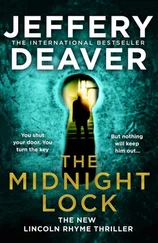“Hitmen?”
“That was my impression. I’m just an audio analyst. But we work with companies that do security consulting, so I’ve got experience in the subject. He also mentioned some names. Braxton, Droon — I think that’s a name. And the company they worked for, BlackBridge. And something called UIP was mentioned a half-dozen times. He gave sources for what he called ‘product.’”
“Drugs.”
“I figured.”
Shaw asked, “So you’ve extracted what was said?”
“Yes, it’s a separate recording. An MP3 file.”
“Good. I need to get a copy. I can use it as leverage in an operation Russell and I are running.”
“Give me an email address and I’ll upload it.”
Shaw said, “No. We need to keep it off the internet. Can you get me a physical copy? Maybe on a thumb drive?”
“I can.”
“We only have a few hours. Bayshore’s south of the city?”
“That’s right.”
“You know San Bruno state park?”
“Sure. I jog there some.”
Shaw asked, “Is there a deserted place we can meet?”
“The south entrance, off McGuire Road. Nobody ever uses it.”
“A half hour?”
“Okay.”
“I’ll be on a motorcycle. Black leather jacket.”
“I’ve got a Toyota Camry. Blue.”
“I’ll bring the original tape.”
“Good. I can do some deeper analysis.”
Shaw paused. He whispered, “Evidence against them... So Ashton was right after all.”
“What was that?”
“Oh. Just thinking out loud. I’ll see you soon.”
Many years ago, San Bruno, south of San Francisco, was an Ohlone village.
The Ohlones lived in scores of indigenous settlements from San Francisco down to Big Sur in precolonial America. Numbering in the tens of thousands, they were hunters, fishers and gatherers, and did some farming too. They were the first people in America to learn how to make bitter acorns into food. The Ohlone practiced the Kuksu religion, heavy into rites and rituals, usually practiced in secretive underground chambers.
Life was fine among these people until the conquistadores arrived and, with the Franciscans, set to work “missionizing” the tribes, moving them off their lands and forcing conversion to Christianity. The population was reduced by three-quarters on account of European diseases, against which the Ohlone had no natural immunity. The coup de grâce for the tribes, however, was not the missions, the Spanish or bacteria, but the state of California itself, whose first governor, Peter Burnett, said, in an address to the legislature in 1851, he would wage a war of extermination against the native people “until the Indian race becomes extinct.” He pursued that policy to grim effect, though several Ohlone tribes still existed in the Central Coastal region.
Shaw knew this because he had some Ohlone blood in his veins, through Mary Dove, who’d taught him about their distant ancestry. San Bruno park, which had been in the heart of their territory, was a sample of what their home had been like two hundred and fifty years ago, before the gold, silver and silicon rushes: Lush and rich and verdant, covered with undulating hills.
It was into a small parking lot here that Colter Shaw now steered his Yamaha. He traversed the smooth asphalt, stopping in the center. He looked with some envy at nearby hiking trails, which would make for an exhilarating dirt bike ride.
That diversion would, of course, have to wait.
The place was not quite deserted. On one side of the small parking lot was a commercial van — a plumbing company. The driver, in overalls, was eating a sandwich and sipping from a very large soda cup. Also present was a California State Parks service pickup, its driver — in an oversize Smokey-the-Bear hat — making a call and referring to a clipboard. No joggers or hikers or sightseers were present. The gray sky shed mist and teased with the promise of rain.
A blue Toyota sedan pulled into the lot and edged slowly toward him. The car stopped and the door opened.
Shaw nodded to the woman in black leggings and sweater and a navy-blue windbreaker. “Julia?”
“Colter.”
He joined her. “You weren’t followed?”
“No. I’m sure. You?”
“I have an anti-tailing device.”
She frowned. “What’s that?”
He nodded to the Yamaha.
“In your motorcycle?” she asked.
“It is my motorcycle. You drive on the lane stripes seven miles over the limit and nobody can follow.”
“I might try that someday.”
“You ride?”
“No. But I always wanted to. I’d need somebody to teach me how. You have to take a test, don’t you? To get a license.”
“Piece of cake. You’ll pass with flying colors.”
She pursed her lips. “What are flying colors exactly? I’m always curious where expressions come from.”
Shaw didn’t know and he told her so.
She pulled a hair elastic off her wrist and tied her tangle of dark-blond hair up into a ponytail, centered high on the back of her head. “Where’s Russell?”
“He’s back at the safe house. Following up on some other leads for our operation.” He looked her over, frowning. “You’re not armed, are you?”
“Me?” She gave a laugh as if this were an absurd idea. “I work for a tech company. We don’t carry guns. Why?”
Shaw nodded at the state park pickup. “Government property. Weapons aren’t allowed.”
“Are you armed?”
Shaw shrugged. “I am but I’ve had plenty of practice keeping mine out of sight.”
The parks department truck’s engine fired up and the unsmiling driver touched the brim of his hat as he pulled past them. Shaw nodded in reply. The truck vanished up a dirt trail into the woods.
She said, “I’ve got a thumb drive but I also ran a transcription program. It printed out everything. I got about a hundred pages.” She retrieved a large white envelope from the front seat of her car.
“Excellent.”
“I might pick up something more from the original. Second generation there’s always some fallout. I was thinking...” Her voice faded, then she gasped, looking past Shaw.
The front door of the plumbing van was swinging open and the driver, a pale-faced man, climbed out. Blond as the dead man in the alley. He was huge, dressed in black tactical gear and was holding a pistol.
Then the side panel slid open and two others stepped to the ground: Ebbitt Droon, armed as well, and — looking every inch the harmless grandmother — Irena Braxton.
When they were out, standing on the ground, another figure emerged and joined them.
The head of BlackBridge, Ian Helms, stared his way. In a voice that was a rich, resonant baritone — as one might expect, coming from such a handsome leading man — he said, “Well, Colter Shaw.”
Arms crossed, studying Shaw, Helms said, “Would’ve been in your best interest not to outsmart my friend.”
Shaw supposed Helms was referring to Sophia/Connie and his dodging the bust at the Pacific Heights safe house.
I was worried. All those drugs... I did it for the children...
At least there he wouldn’t be facing that fate they now had planned for him here in the park.
Droon took over. “Okay, Shaw, pull your shirt up. Slow, don’tcha know?”
“Just take it easy, Droon.”
“What is this? What’s going on?”
“Hush, there, Miss Julia,” Droon scolded.
“How do you...” Her voice faded.
“Sit tight. I’ll get to you in a minute, Lovely.” He turned to Shaw. “Now, Righty, use that left hand of yours and pluck that sissy Glock off your hip and toss it in the bushes there. I want to see fingers out, like you’re sipping tea from a dainty little cup.”
Читать дальше
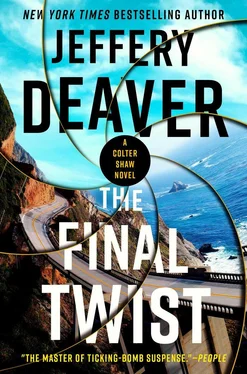
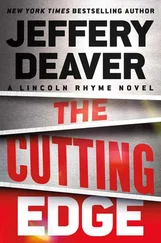

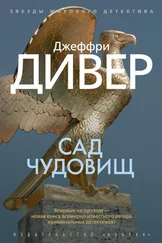

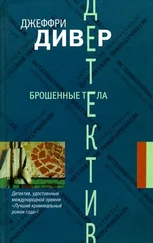

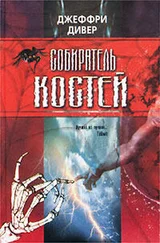
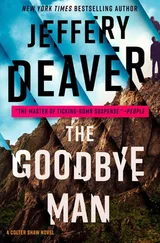
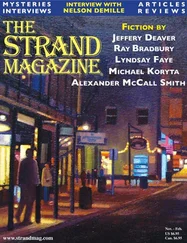
![Джеффри Дивер - Where the Evidence Lies [A Lincoln Rhyme Short Story]](/books/403782/dzheffri-diver-where-the-evidence-lies-a-lincoln-r-thumb.webp)

